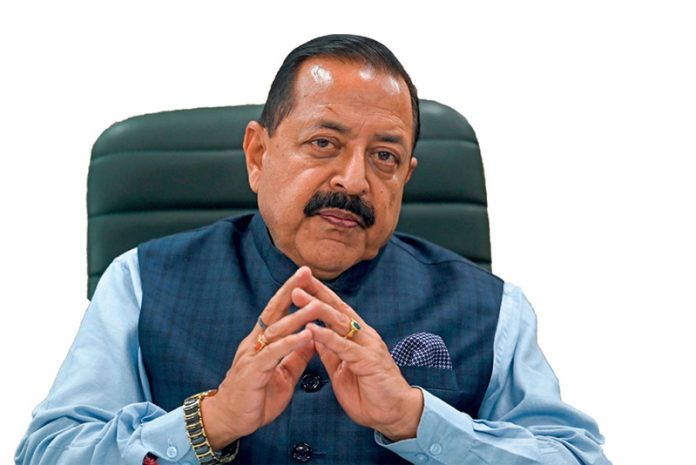Excelsior Correspondent
NEW DELHI, Aug 17: Union Minister of State (Independent Charge) for Science and Technology, Minister of State (Independent Charge) for Earth Sciences, MoS PMO, Department of Atomic Energy, Department of Space, Personnel, Public Grievances and Pensions, Dr. Jitendra Singh said here today that the announcements in the Budget 2024-25 relating to the Space sector have a futuristic vision.
In an exclusive interview to a magazine, Dr Jitendra Singh said that the Modi Government had broken the shackles of the past to liberate the Space Sector and the credit for this goes to Prime Minister Narendra Modi. He further elaborated that for nearly 60-70 years, the Space sector was working behind a veil of self-imposed secrecy. That deprived the sector of resources and knowledge. We had no dearth of talent, he said.
The 2023 new space policy was a watershed moment, said Dr Jitendra Singh. For the first time, he said, the private sector was allowed to participate in ISRO’s activities. Just before that, in 2020, an agency called In- SPACe was set up, which is an interface between government and private sectors. This was followed by the New Space India Limited to produce and assemble launch vehicles, he added..
According to the Minister for Space, there is an amazing enthusiasm about the developments. In 2021 or so, we had just one digit StartUp in the Space sector, and now we are nearing 300. Some of them are world-class, many are entrepreneurial stories. There is a Startup called AgniKul Cosmos that has set up a private launchpad in the ISRO premises, he said. They are reinforcing the ISRO infrastructure. There is Skyroot, which carried out the first-ever private sub-orbital launch. They are working on being the first to develop a rocket in the private sector. As a result, global companies like SpaceX are reaching out to Indian companies.
According to Dr Jitendra Singh, all this is placing India as a frontline player in the private sector. Therefore, in 2023, we saw an investment of Rs.1000 crore. The projection is that the space economy will grow five times in the next 10 years or around $44 billion.
Replying to a question regarding potential employment opportunities in the Space Sector, Dr. Jitendra Singh said, this might provide employment to talent that might have gone abroad. Our human resources were never lacking, he said. We have an institute in Thiruvananthapuram for space technology. The selection is on the basis of the IIT-JEE exam. The batches would get 100 percent placement, but 60-70 per cent would go to NASA. There were no avenues. Now, he said, there are not only avenues for employment, but exciting opportunities to begin a startup. A new area of livelihood has opened up.
When asked about the important upcoming ISRO missions, the Minister for Space said that the immediate one will be “Gaganyaan”, which was delayed due to Covid, but will now happen next year. The trial flights are going on. Then we have our robot flights, where a female robot, Vayumitra, will be sent to space in 2025. The robot will do all the activities of an astronaut and return to Earth and be extracted from the landing craft.
If all goes well, says Dr Jitendra Singh, we can send an Indian human into Space, maybe in the second half of 2025. The Indian Space Station is planned by 2035. The first Indian to land on the moon may happen by 2040.


